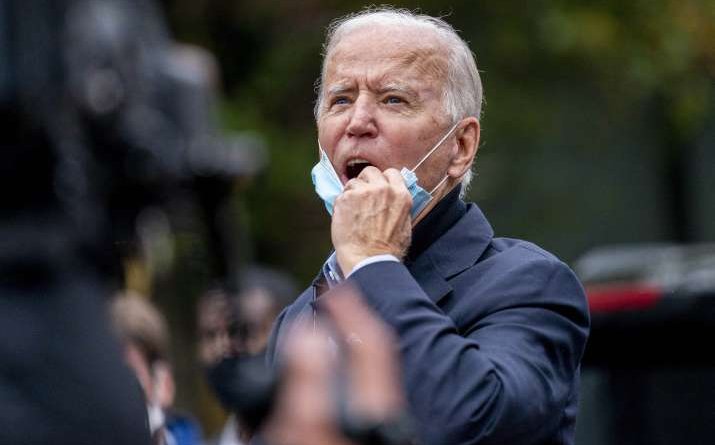New York, Oct 29: Foreign governments will be more willing to cooperate with the United States if Democratic Presidential nominee Joe Biden wins the 2020 election than if President Donald Trump is reelected, a survey of international relations scholars found.
Results from a Teaching, Research, & International Policy (TRIP) survey of 708 international relations scholars at US universities found that international relations scholars are far more likely to support Biden than Trump for president and overwhelmingly agree that Biden will be better able to achieve his foreign policy agenda.
Experts who identify themselves as Republicans and Independents are far more skeptical of Trump’s approach to foreign policy than are their co-partisans in the US population at large, the survey found.
Respondents to the survey overwhelmingly said that foreign governments will be more willing to cooperate with the United States if Biden (92 per cent) wins the election than if Trump (2 per cent) wins.
By a significant margin, 95 per cent of the experts agreed that Biden will be a more effective foreign policy president than Trump (5 percent).
Further, if the election were held today, more than 94 per cent of IR faculty who are eligible to vote would cast a vote for Biden, and 5 per cent would vote for Trump, the survey found.
“Despite concerns about foreign election interference, most scholars are confident that Russia, Iran, and China will not significantly impact the outcome of the election.
They do believe, however, that foreign efforts to interfere will undermine American citizens’ confidence in election results,” the survey said, adding that the experts see Russia as the “most pernicious” of the three states when it comes to election meddling, “even though they see the rise of Chinese power and influence as a greater long-term threat to the United States than the rise of Russian power and influence.”
The experts also believe that Trump and Biden’s foreign policies would differ most markedly in the areas of climate change, engagement with multilateral organisations, and global public health.
The scholars surveyed see the most similarities between the two candidates’ policies on exchange rate policy, counterterrorism, and the use of military force abroad.
The survey found that 88.5 per cent of scholars believe climate change is a major global threat, followed by the spread of infectious diseases, with 76 per cent agreeing that it is a major threat to society.
Over 70 per cent of international relation scholars believe that former President Barack Obama outperformed Trump in foreign policy areas.
Teaching, Research, and International Policy (TRIP) Project Snap Polls survey all faculty members employed at a US university in a political science department or policy school who teach or conduct research on issues that cross international borders.
Michael J. Tierney, Hylton Professor of Government at William & Mary said relations with China, cybersecurity, and global public health provide dim rays of hope for bipartisanship, whereas issues like climate change are likely to remain quite partisan.
He added that while the experts expect big differences between the two candidates when it comes to policy on climate change, immigration, and collaboration within multilateral organisations, they see less of a difference when it comes to use of military force abroad and counter-terrorism policy”.
TRIP is based at the Global Research Institute at public research university William & Mary in Virginia. (PTI)
Trending Now
E-Paper


